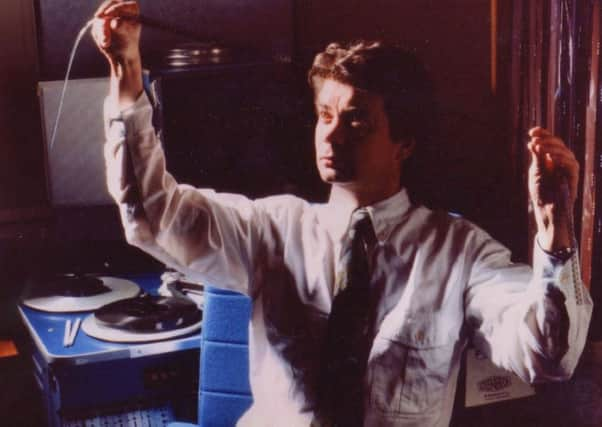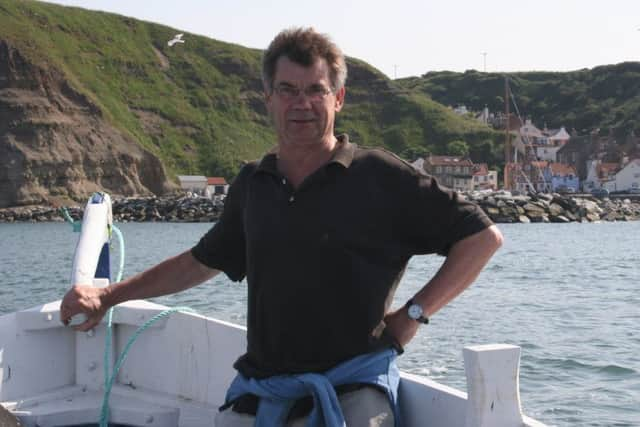Grant McKee


He was also among the first journalists to visit the front line of the civil war raging in Ethiopia, at the same time as Bob Geldof was galvanising the country into raising funds to combat the famine there.
He was to become head of documentaries at YTV and, under his watch, the department won awards on both sides of the Atlantic. In his later life, he spent much of his time on the coast at Staithes. He was a founder member and chair of the Staithes Festival of Arts and Heritage and in 2013 wrote Stronger than the Storm, an official history of the Staithes and Runswick lifeboat station, which included the remarkable story of the time in 1901 when, with all the village’s men out fishing, Runswick Bay’s lifeboat was launched by the women they left on the shore.
Advertisement
Hide AdAdvertisement
Hide AdMcKee was born in Devon in 1951 to Eric, a Royal Navy commander, and to Betty (neé Dean). After their wedding in Betty’s native Sydney, Eric went back to sea and Betty joined 650 Australian war brides on an aircraft carrier to England. The story of the journey was fictionalised by McKee’s niece, the novelist Jojo Moyes, in her book, Ship of Brides.


McKee spent much of his early childhood in the Far East, studied law at Oxford and went into journalism, first at the Goole Times and then, as a reporter and feature writer at The Yorkshire Post. It was while there that he received a phone call from the YTV Director of Programmes, John Fairley, he later recalled.
He was, he said, at a crossroads, juggling two possible career moves. One was to become a parliamentary correspondent for United Newspapers; another was to join the sports desk at the Financial Times. TV gave him a third and ultimately compelling option.
By the late 1970s, McKee was working at YTV, first on Calendar, then on a documentary series about the Cold War with Jonathan Dimbleby. In 1983, he became deputy editor of First Tuesday, ITV’s pre-eminent documentary strand.
Advertisement
Hide AdAdvertisement
Hide AdThe series had been conceived by John Willis, the department head, as a monthly anthology of unrelated films, some whimsical, others piercingly investigative, and it was the latter variety on which McKee made his name.
“Grant was a documentary maker of utter integrity,” said Willis. “The truth mattered deeply to him and he fought tirelessly to defend it. He was, in so many ways, a unique talent and a special person.”
In particular, his access behind enemy lines with the Tigrayan People’s Liberation Front in Ethiopia brought him national attention when his film, The Unofficial Famine, was screened in February 1985. An appeal broadcast at the end of it raised more than £1m.
Other campaigning films followed, culminating in his 1986 documentary about the pub bombings, The Guildford Time Bomb. There followed a string of sequels and a detailed book on the case, which, together with public pressure, led the Home Secretary, Douglas Hurd, to announce a fresh appeal. The Crown put up no defence and, as McKee later wrote, “the Lord Chief Justice, Lord Lane, clearly disgusted at the humiliation of the legal system, grudgingly overturned the convictions”. In 2005 Prime Minister, Tony Blair formerly apologised to the Guildford Four for their 15 years of wrongful imprisonment. Along with the Maguire Seven all 11 were exonerated.
Advertisement
Hide AdAdvertisement
Hide AdIn 1994 McKee became director of network programmes at YTV, but he did not get on with the new brooms who swept in after the 1993 franchise debacle – the Australian managing director Bruce Gyngell and the founding MD Ward Thomas, who had been brought out of retirement. When Gyngell cancelled a £1m drama documentary on child abuse, McKee resigned, citing “incompatible differences on programme-making policy”.
He remained in Yorkshire as a freelance executive producer, supervising some 120 documentaries for the BBC and Channel 4. He worked as an adviser to the film departments of Leeds and York Universities and was on the founding committee of the Sheffield International Documentary Festival.
He is survived by his wife, Jill Turton, a former YTV producer and subsequently a restaurant reviewer for this newspaper, and their daughter, Eleanor.